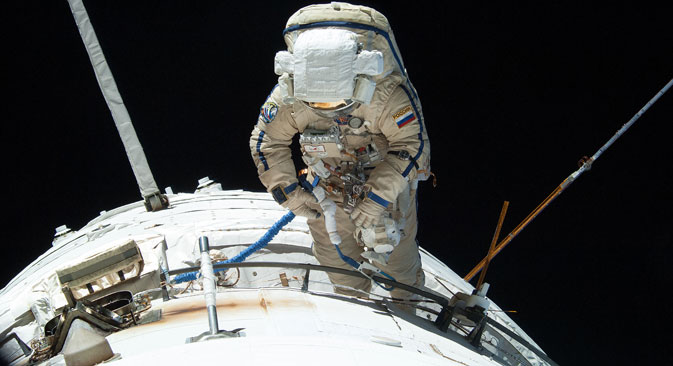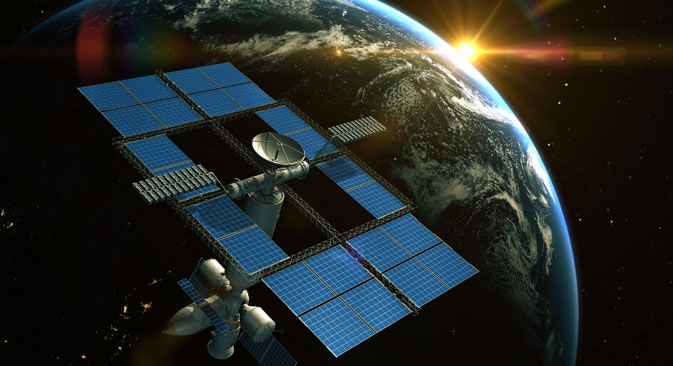Why do foreign astronauts have to be able to speak Russian?

Astronauts learn not just the Russian language, but the specialty language – the "language of the astronaut." Source: NASA.gov
RBTH: Why teach Russian to astronauts, if everybody speaks English anyway?
Yelena Kirilenko: The working language at the [International Space] Station (ISS) is English, but all the crews are now delivered to the station by a Russian ship [since the end of the Space Shuttle program, Soyuz is the only spacecraft used to carry astronauts to orbit – RBTH].
Each crew has three people – one Russian, one American [who sits in the left seat of Soyuz during ascent into orbit] and another crew member, for instance a space tourist [who sits in the right seat]. The commander of Soyuz is always Russian, while the foreign astronaut becomes the commander of the ISS.
The astronaut who is in the left seat is the right hand of the commander and duplicates all the commander’s operations during the ascent, from lift-off until docking with the ISS. The astronaut in the left seat should communicate in Russian for the entire six hours, since the Mission Control Center gives commands in Russian, and an interpreter simply would not have time to translate it all.
RBTH: But foreign astronauts and, above all, the Americans, don’t start learning Russian from scratch when they come to Star City to prepare for flying on the ISS, do they?
YK: American astronauts come to us after being assigned to a crew and after passing an ACTFL test, the American system according to which the astronaut in the left seat should speak the Russian language at a level no lower than Intermediate High.
On arrival at Star City, astronauts learn not just the Russian language, but the specialty language – the "language of the astronaut." For the astronaut in the left seat – the flight engineer – it is four hours a week. For an astronaut in the right seat it is two hours per week.
RBTH: Can you please give an example of what astronauts study?
YK: For example, there is a control and navigation system on Soyuz. This is the most difficult for the astronaut in the left seat, especially training on approach and re-docking [with the ISS]. These are manual procedures and manual modes, so you can make a mistake and miss the docking system.
There is a transmission during the docking and redocking, and instructors and crew constantly commentate on what they are doing in Russian. Instructors give a command, and the crew commentates.
RBTH: And what commands can instructors give during training and the Mission Control Center during actual docking in orbit?
YK: "Slow down," "speed up/accelerate," "switch over to manual mode," "damp rate/velocity," "issue the signal," "monitor the propellant consumption," "brake," "perform deorbit burn." The Russian-language textbook for flight engineers contains as many as 100 pages.
RBTH: How often do problems arise because of language-related misunderstandings?
YK: We have had no such cases, because astronauts come with the Intermediate High level and are highly motivated. Previously, interpreters worked both at theoretical classes and training. Now communication in simulators is only in Russian, that's why astronauts – American, Japanese or European – often answer in Russian in the exam.
RBTH: And what are the language level requirements for space tourists?
YK: This is social sphere, specifically a basic level of knowledge of the Russian language and the ability to meet the minimum needs of communication. They train for only six months and get only about 250 hours of the Russian language. As for special terms, we first introduce simple words – "on-off," "press." Word combinations – "check the leakage," "equalize the pressure," "hold the handle" – are introduced in the last two months of training.
All rights reserved by Rossiyskaya Gazeta.
Subscribe
to our newsletter!
Get the week's best stories straight to your inbox
